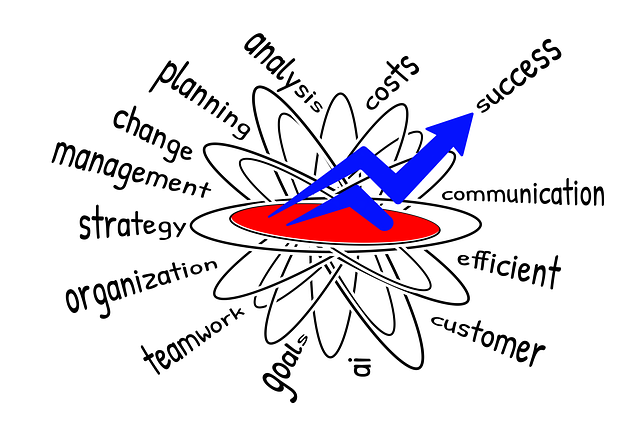In today's globalized academic landscape, reaching diverse audiences is crucial for research impact. UK Academic Journals Translation Services play a vital role in localizing academic content, ensuring it resonates with both specialists and general readers worldwide. These services employ linguistically skilled experts to translate scientific findings accurately while preserving cultural sensitivity, thereby fostering inclusivity within the global scholarly community. By transcending language barriers, they enable international collaboration, knowledge exchange, and increased readership for UK-based academic journals. Advanced AI tools further enhance this process, promising faster, more precise translations while maintaining academic integrity.
In today’s globalized academic landscape, reaching diverse audiences is paramount. Localizing research ensures that findings resonate with readers worldwide, particularly within the context of UK academic journals. This article explores the critical role of translation services in localizing scholarly content for international consumption. We delve into strategies for identifying and engaging diverse audiences, overcoming language barriers in academic publishing, and best practices for translating research articles while maintaining cultural sensitivity. Case studies highlight successful localization projects, and we look at future trends shaping this dynamic field.
- Understanding the Importance of Localized Research
- The Role of Translation Services in UK Academic Journals
- Identifying Diverse Audiences for Research Outcomes
- Overcoming Language Barriers in Academic Publishing
- Best Practices for Translating Research Articles
- Ensuring Cultural Sensitivity and Precision
- Case Studies: Successful Localization Projects
- Future Trends in Localizing Academic Research
Understanding the Importance of Localized Research

In today’s globalized world, localized research is more than just a nice-to-have—it’s essential for reaching and understanding diverse audiences. For researchers aiming to publish in UK academic journals or beyond, translating their work into relevant local languages opens doors to broader impact and deeper insights. Effective translation services not only ensure clarity but also capture cultural nuances, making the research accessible and meaningful to readers worldwide.
Localized research plays a pivotal role in bridging communication gaps, fostering cultural exchange, and promoting inclusivity within the academic community. By utilizing professional translation services tailored for academic content, researchers can ensure their findings are accurately conveyed, facilitating cross-cultural collaboration and enriching the knowledge landscape across different regions and languages.
The Role of Translation Services in UK Academic Journals

In today’s global academic landscape, UK Academic Journals face a growing demand for localized research content to cater to diverse reader audiences worldwide. Translation services play a pivotal role in bridging this gap by enabling researchers and publishers to reach an international community of scholars. By providing high-quality translation, these services ensure that groundbreaking research conducted within the UK is accessible and meaningful to readers from different linguistic backgrounds.
Effective UK Academic Journals Translation Services go beyond simple word-for-word translations, capturing the nuances and context of academic discourse. They employ specialized translators familiar with both the source language and the target academic field, ensuring accuracy and preserving the integrity of the original research. This localized content not only enhances readership diversity but also fosters a more inclusive scientific community, encouraging global collaboration and knowledge exchange.
Identifying Diverse Audiences for Research Outcomes

In today’s diverse and interconnected world, research outcomes must be tailored to resonate with a wide range of audiences. Identifying these diverse audiences is a crucial step in ensuring that research has maximum impact. This involves understanding not only demographic differences but also cultural nuances, language barriers, and varying levels of scientific literacy. For instance, findings from UK academic journals need to be accessible to both academic specialists and general readers alike, requiring clear communication tailored for each group.
Localizing research involves translating not just words but ideas and concepts into various languages and formats. UK Academic Journals Translation Services play a vital role in this process by providing professional translation services that capture the essence of the original research while ensuring cultural relevance and accuracy. This approach ensures that diverse audiences, from students to policymakers, can benefit from and contribute to the knowledge base, fostering a more inclusive scientific community.
Overcoming Language Barriers in Academic Publishing

Overcoming language barriers is a significant aspect of making academic research accessible to diverse audiences, particularly in the UK academic journal landscape. With an increasing global community of researchers and readers, ensuring that scholarly works are available in multiple languages has become essential. One effective solution is to utilize professional translation services tailored for academic journals. These services employ linguists who specialize in scientific terminology, guaranteeing precise and contextually appropriate translations.
UK Academic Journals Translation Services play a pivotal role in breaking down communication barriers, enabling researchers from non-English speaking backgrounds to contribute their knowledge and ensuring that findings reach a broader, multilingual readership. This approach not only enhances the inclusivity of academic discourse but also fosters collaboration and knowledge exchange on an international scale.
Best Practices for Translating Research Articles

When localizing research articles for diverse audiences, particularly in the UK academic landscape, engaging professional translation services is paramount. These services go beyond mere word-for-word translations; they ensure the accuracy and fluency of complex scientific and technical concepts while preserving the integrity of the original research.
UK Academic Journals Translation Services employ linguists who specialize in specific fields to handle specialized terminology. This ensures that vital nuances and subtleties are conveyed effectively, maintaining the scholarly integrity of the article. They also adhere to strict quality control measures, including proofreading and editing, to minimize errors. Moreover, these services often provide cultural adaptation, ensuring the research resonates with readers from various backgrounds.
Ensuring Cultural Sensitivity and Precision

Ensuring cultural sensitivity and precision is paramount when localizing research for diverse audiences, especially in the UK where a rich mosaic of cultures coexist. Translators and researchers must go beyond mere word-for-word substitutions to capture nuances and avoid misinterpretations. This involves deep cultural comprehension, as even seemingly innocuous terms can carry different connotations across languages and communities. For instance, UK Academic Journals Translation Services often encounter concepts related to time, family, and customs that require careful adaptation to respect diverse reader backgrounds.
Precision is equally critical. Localized research must accurately represent the original study’s findings and methodology to maintain intellectual integrity. Translators should be familiar with academic writing styles in various languages to ensure clarity and coherence. Moreover, they must stay updated on cultural shifts and language evolutions to provide relevant and up-to-date translations. This commitment to accuracy fosters trust among diverse readers, enabling them to engage meaningfully with the localized research and appreciate its value within their unique cultural contexts.
Case Studies: Successful Localization Projects

Successful localization projects offer valuable insights into how to effectively adapt content for diverse audiences. One notable example involves a UK-based academic journal aiming to expand its global reach. By employing professional translation services specializing in scientific literature, they were able to localize their content, ensuring accuracy and preserving academic integrity. This approach not only increased accessibility but also attracted a wider international readership.
The project’s success lay in the careful selection of translators with domain expertise in the specific field. Additionally, comprehensive quality assurance processes, including peer review, guaranteed the high-quality translation of complex scientific terms. This case demonstrates that localization, when done right, can significantly enhance content accessibility and engagement across diverse linguistic landscapes, as evidenced by its positive impact on the journal’s readership statistics in various UK Academic Journals Translation Services.
Future Trends in Localizing Academic Research

The future of academic research localization is set to be shaped by several emerging trends. With the global academic community becoming increasingly diverse, there’s a growing demand for UK academic journals translation services that cater to a wide range of languages and cultural nuances. Advanced AI-powered tools are likely to play a significant role in this process, enabling faster and more accurate translations than ever before. These technologies can significantly streamline research localization, making it more efficient and cost-effective.
Additionally, there’s a growing emphasis on maintaining the integrity of academic content during translation. Researchers and publishers are recognizing that precise scientific terminology and complex conceptual frameworks must be preserved to ensure knowledge transfer remains seamless. This trend fosters closer collaboration between subject matter experts and professional translators, resulting in high-quality localized research that resonates with diverse audiences worldwide.
Localized research is no longer a niche consideration but a vital strategy for reaching and engaging diverse audiences, especially within the UK academic landscape. As global collaborations intensify and academic publishing becomes more inclusive, understanding the nuances of different languages and cultures is essential. Translation services play a pivotal role in breaking down language barriers, ensuring that research outcomes from UK academic journals are accessible to an international community. By implementing best practices, including cultural sensitivity and precision, researchers can effectively communicate their findings to diverse readers. The future of academic research localization promises enhanced global collaboration and knowledge exchange, enriching the tapestry of academic discourse worldwide.
